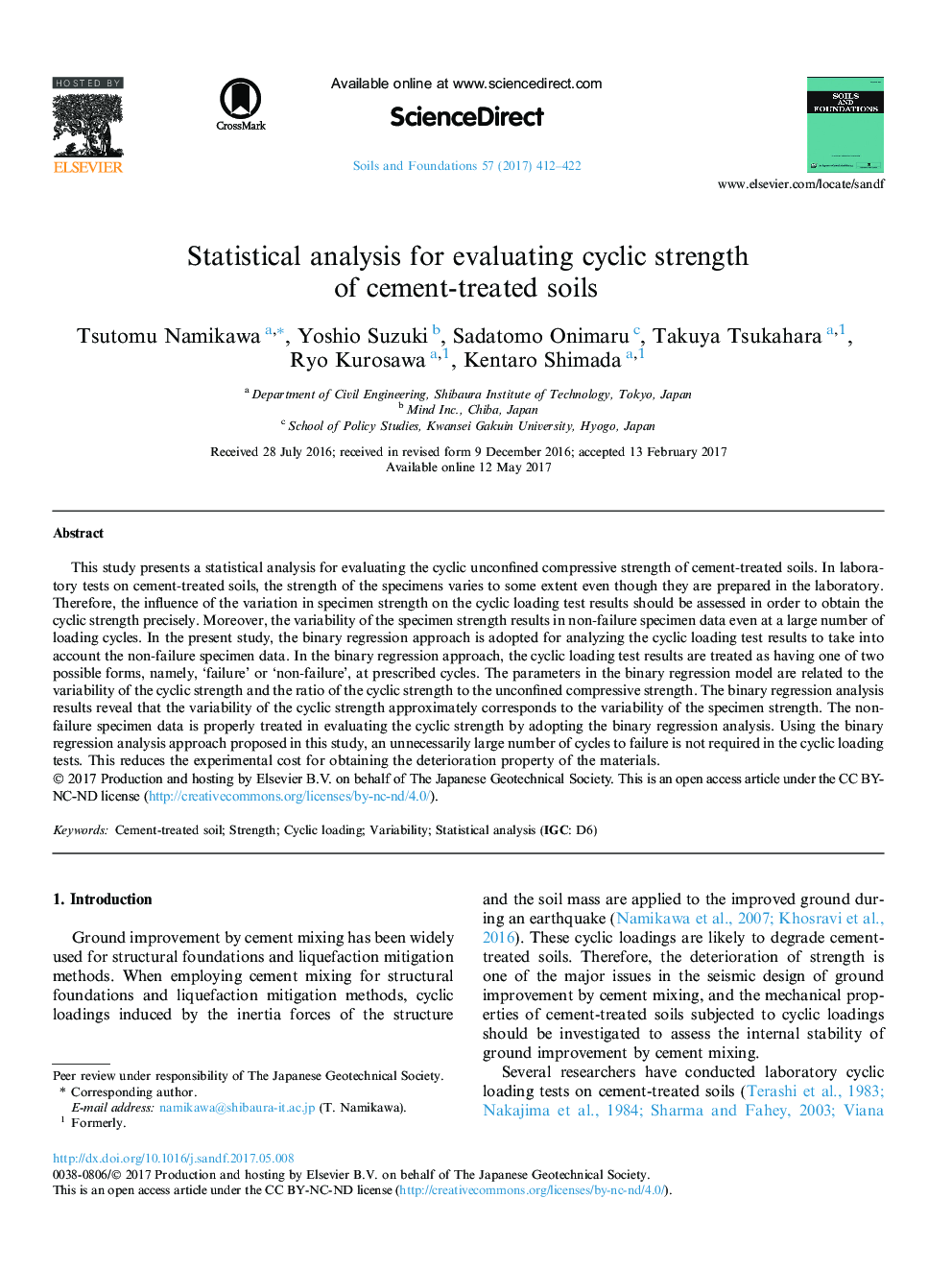| Article ID | Journal | Published Year | Pages | File Type |
|---|---|---|---|---|
| 4927653 | Soils and Foundations | 2017 | 11 Pages |
Abstract
This study presents a statistical analysis for evaluating the cyclic unconfined compressive strength of cement-treated soils. In laboratory tests on cement-treated soils, the strength of the specimens varies to some extent even though they are prepared in the laboratory. Therefore, the influence of the variation in specimen strength on the cyclic loading test results should be assessed in order to obtain the cyclic strength precisely. Moreover, the variability of the specimen strength results in non-failure specimen data even at a large number of loading cycles. In the present study, the binary regression approach is adopted for analyzing the cyclic loading test results to take into account the non-failure specimen data. In the binary regression approach, the cyclic loading test results are treated as having one of two possible forms, namely, 'failure' or 'non-failure', at prescribed cycles. The parameters in the binary regression model are related to the variability of the cyclic strength and the ratio of the cyclic strength to the unconfined compressive strength. The binary regression analysis results reveal that the variability of the cyclic strength approximately corresponds to the variability of the specimen strength. The non-failure specimen data is properly treated in evaluating the cyclic strength by adopting the binary regression analysis. Using the binary regression analysis approach proposed in this study, an unnecessarily large number of cycles to failure is not required in the cyclic loading tests. This reduces the experimental cost for obtaining the deterioration property of the materials.
Related Topics
Physical Sciences and Engineering
Earth and Planetary Sciences
Geotechnical Engineering and Engineering Geology
Authors
Tsutomu Namikawa, Yoshio Suzuki, Sadatomo Onimaru, Takuya Tsukahara, Ryo Kurosawa, Kentaro Shimada,
